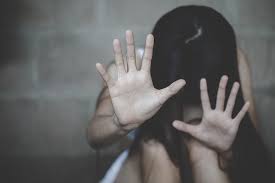Human trafficking is a global menace and Jammu and Kashmir is no exception. It is a biggest challenge facing the humanity and therefore needs a comprehensive and result-oriented response by the governments, that be, and the society as a whole. As rightly pointed out by the Lt Governor, Manoj Sinha, during the inauguration of the workshop over the issue, national and international criminal networks have become a part of this crime. Thousands of innocents suffer because of this. Economically weaker sections of society, women, children, migrants, and the displaced especially are unsafe when it comes to human trafficking and if the power of every section of society is put together, then this campaign (against human trafficking) will gain momentum.
During the function, the National Commission for Women (NCW) chairperson Rekha Sharma revealed that human trafficking increased by 15.56 percent in Jammu and Kashmir last year as compared to the 2021-22 financial year as per NCRB data and emphasised that it is “just the tip of an iceberg”because the data does not give the true picture. She also said that the human trafficking is a serious crime and it does not have boundaries whether it is Kashmir or Kanyakumari. This is prevalent everywhere. And sometimes, the victims of the trafficking do not even know that they are the victims.
The menace is very much prevalent in Jammu and Kashmir and the victims are women, children and displaced persons. The UT administration has been working on the front tirelessly, and anti-human trafficking cells are active in 11 districts of the Union territory, while in the rest nine, the administration is going to set up very soon. LG informed the workshop that J&K UT has the lowest number of cases of human trafficking. Rescue and rehabilitation is the priority and 202 women’s help desks have been set up in all the police stations of the UT. While one appreciates the establishment of anti-human trafficking units but these can’t deliver the desired results unless working with the civil society and the youth of the respective areas. Curbing such crimes has never been done and will never be done in isolation by law enforcement agencies only. It is a societal crime and therefore needs hundred percent involvement of the people. Village and Mohalla committees, religious heads, civil society groups, NGOs and the youth of the respective areas should be partnered with by the law enforcement agencies to root-out this menace. As suggested by the LG, the law enforcement agencies should analyze three important aspects – origin, transit and destination and prepare a Priority Action Plan to strike at the root of the human trafficking network and with the help of the society the coordinated response must focus on vulnerable groups such as children, women, labourers, displaced persons and it should be ensured they are identified and sufficiently protected.
That said, the government, here as well as at the Centre, should be mindful of the fact there exists no Women’s Commission in Jammu and Kashmir from past several years. While we talk about eradicating human trafficking, the absence of a Women’s Commission does not help the cause. Earlier, the state governments used to nominate the commission but in absence of a local government, the Centre should look for some alternate ways to establish the commission. In absence of a proper commission, talking about women rights sounds shallow.




